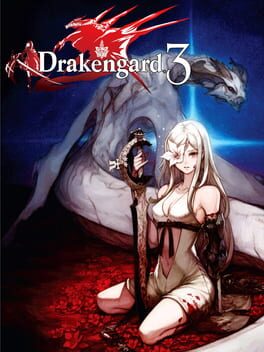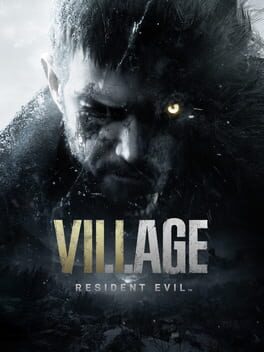LILSHUTUP
2022
2013
Basically a potpourri of Yoko Taro's usual ruminations including exploring the inevitable development of a human/machine's moral ambiguity over time, the mechanics of wholesome companionship within these furthest extremes of vulgarity and depravity, how these politics and natural human inclination towards goodwill influence his classic self-destructive scenarios/fantasies when it comes to his attitude toward being an artist, and a metacommentary on how annoying lore hunters online caused an even further self-destructive loop inside his own machine against his will. What this adds up to I can charitably describe as a warning against the fraying of interiority when one tries to mentally blockade themselves from good old fashioned causation, but this is more or less the same conclusion we get from Drakengard the first which leaves Drakengard 3 ending up as the slightest Yoko Taro work despite being the most convoluted, and it's intertextual function in the canon feels mainly intended to poke fun at the intertextuality itself, which is a shame because that aspect is one of the best parts of this series for me (although this could be in response to how fans don't tend to treat the relationship between Drakengard the first and NieR with any respect beyond it's status as the "joke" path). The relative balance of Drakengard the first and NieR is worn away here too far into general pettiness and spite, something that was then overcorrected by the new sincerity vibe of his second slightest game NieR: Automata
Played basically in one chunk so obviously it's fun. Largely very enjoyable set pieces particularly in the front half. Closer now to the story beat style of the RE movies where its just one thing to another with no real logic, other than 'something violent or crazy should happen next', however lacking the spectacle and spiritual depth of the movies. Americans continue to be horrible at writing and voice acting games, random man in black driving the car at the end was the most convincing character. The way Resident Evil has transitioned into the sad rustic violin Last Of Us-God Of War Remake brand of emotional grizzled father ethos is very offputting, not least because the game series lifeblood has traditionally been full sadism (particularly in the fantastic RE7) but because like TLOU the hokey familial sentimentality just does so little to get anyones (or at least my) blood pumping. The dearth of horrific imagery in the majority of this (save the incredible puppeteer's house) is a big problem. The Corpse Bride looking aesthetic of this in general is horrible and it seems to me that there's a widespread spiritual sickness in the world today considering the way the internet responded to the vampire woman
2003
This review contains spoilers
In a lot of ways kindred to Nolan's Tenet — all existing frameworks are in place to tie our ever slipping minds together to comprehend all the phenomena around us, at any cost we need to keep it moving forward. Ending A is the "policy is to suppress" path, in which the existing order is kept alive through true neutrality and disregard of all suffering it may entail, as liberalism does. On this path of the game we win the world by literally ignoring all the side characters and missing most of the richness of the world, instead going more or less on just a straight path of repeated murder. As we move further down the rungs of the ladder we see the ruins of trying to expose ourselves to the pain of the world and the folly of not doing it to the necessary extent: saving the world while helping everyone along the way requires excoriating the sins and personal horrors of everyone you know (and every possible unforgivable taboo is present, down to putting the player in the shoes of a complete psychopath, and you just have to live with it) because after all the world is bound together by these avoided and coped with evils, but if you want to go that far it is worth it. If you want to think about what makes up the compositions of everyone's sins you need to go so deep that you break the fabric of your reality. Every aspect of Drakengard has an unfathomable depth being held back flimsily, this is the aspect that makes it unique in games, it makes complete thematic use of its ontology as a video game. The soundtrack sounds like it's stitched together from bits and pieces of a thousand bombastic scores. The 'game montage' as it were relegates us to experiencing the characters' emotions through very strict viewpoints, we can hear their voices during the restrictive ground and aerial levels, and from time to time we see their character models stuck gesticulating with bobbing faces from fixed angles. The cutscenes are effectively a relief from the unforgiving existence foisted on the player at all other times, and even these scenes are too horrible to witness. Playing it at all full stop was too much for me and I eventually just watched everything I missed out on. The only logical way for it to pan out is in Ending E where all this generic action fantasy game detritus breaks through reality into real world Tokyo, where all the myths and game systems and fictional morality plays are just a existential abomination, but one crafted by the hands of man, and in the end destroyed by man. Only fitting that the acid rain and fog of the dead digital reality dragon would lead into a new story in which men's bodies are torn from their souls.




